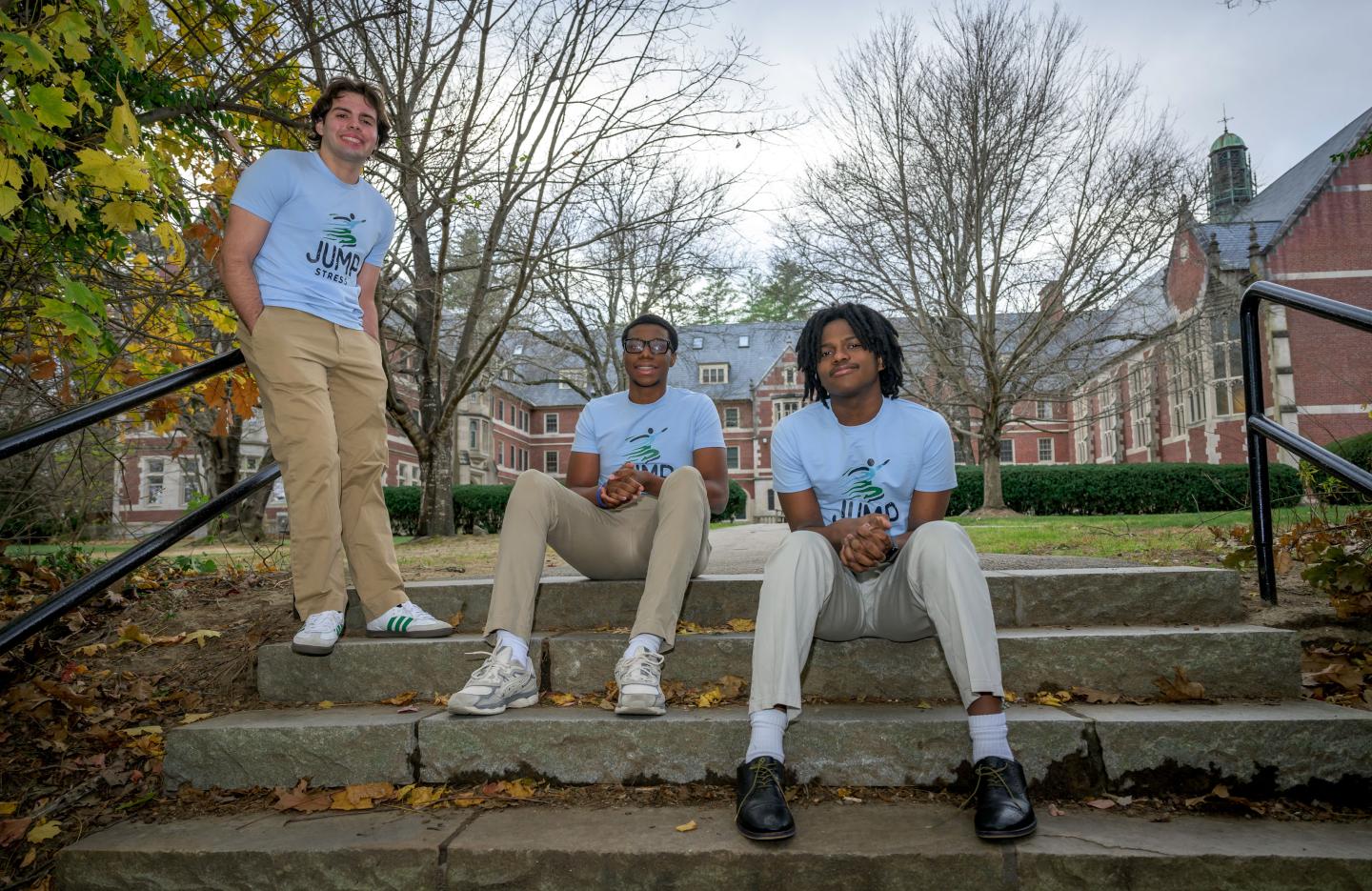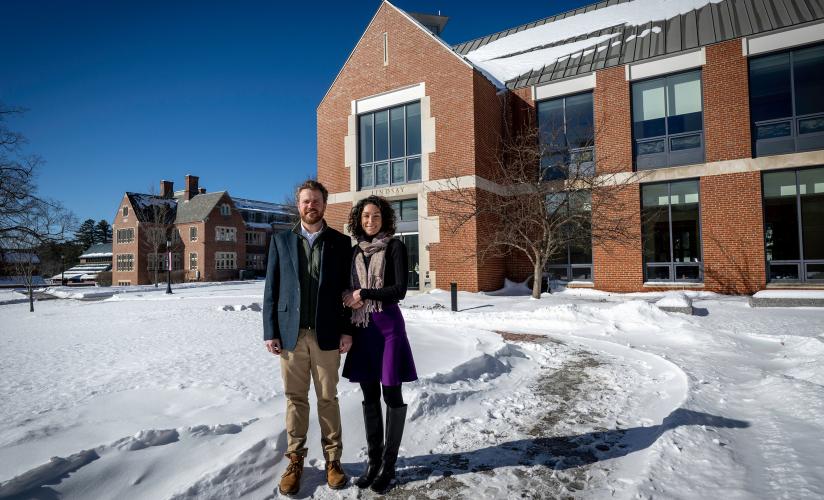

A collaboration among Sixth Formers takes stress management strategies global.
BY LARRY CLOW
When it comes to dealing with stressful situations, Linus Seruma ’25 knows he has options. Long bike rides and listening to music help, and if he needs to talk, he knows he can rely on his friends Josh Samuels ’25 and Ethan Maggio ’25.
“If I ever need to talk to them, I know I have an outlet,” Seruma says. “And sometimes the best thing someone can do is listen.”
But the three friends know that other students might not have access to those coping strategies, especially in countries where there is more social stigma around issues related to mental health. That awareness led to the creation of JUMP Stress. The acronym stands for Joy, Unity, Mindfulness and Prevention, and the project is an effort bring stress management strategies to teens around the world. In August, Seruma, Samuels, and Maggio organized a daylong conference in Uganda that drew approximately 200 students ranging in age from 13-22. It was an event that they all say had a positive impact on them and the students they met.
“We learned a lot of new perspectives and made a lot of friends,” Maggio says.
Students everywhere have to deal with stress every day. But the three recognize that SPS is a uniquely supportive environment where talking about mental health concerns is accepted and encouraged. According to Seruma, the Living in Community (LinC) program and other mental health and stress management resources at SPS inspired JUMP Stress.
“LinC was the first time for me that a school offered techniques to help manage the way I live, and that was an experience I saw was missing in Uganda,” Seruma says. His father is from Uganda, and Seruma has teenage friends and family there. “I thought about the services here and I know those same things aren’t offered in Uganda. Information about mental health awareness isn’t as accessible there as it is here, and I wanted to bridge that gap” he adds.
The problem is acute in Uganda. According to the World Health Organization, teen suicide rates in sub-Saharan Africa are among the highest globally, and studies have shown that 60-71 percent of students ages 12 to 24 have used addictive substances, with alcohol as the most common.
The concept of unity, in particular, is meaningful to the project’s success. The three cofounders have been friends since their first days at SPS. Samuels has an interest in neurology and saw an opportunity to advocate to others how stress can affect the brain. Maggio’s passion for mental health advocacy and stress management is personal; his aunt died by suicide. Also on the project team is Jamila Kariisa, a friend of Seruma’s who attends school in Mombasa, Kenya.

“I thought about the services here and I know those same things aren’t offered in Uganda. Information about mental health awareness isn’t as accessible there as it is here, and I wanted to bridge that gap.”
Bringing stress management strategies to students in another country is no easy task. Seruma, Samuels and Maggio created a website and social media accounts to promote the conference, collaborated with the nonprofit Women of Purpose International to help manage donations to fund the conference, and worked with Kariisa to connect with schools, media outlets and experts in Uganda.
“It was challenging to develop the event and raise awareness,” Samuels says. “We did some radio interviews with stations in Uganda and used our Instagram account to promote the event.”
Simply raising awareness about mental health concerns in the country was challenging, according to Maggio. “There’s a cultural view that (mental health) isn’t real; we were worried that people would criticize the event or deem it not worthwhile.”
For the Aug. 24 conference, the trio developed presentations on stress management strategies like art and music therapy and invited Dr. Edward Bantu, a professor of counseling psychology at Uganda’s Kabale University, to deliver a keynote address. During the second half of the day, attendees took part in breakout sessions to discuss how stress affects them and had the chance to ask questions. The experience was as beneficial for the organizers as the students who attended.
“We learned a lot from them, especially during the breakout sessions,” Samuels says. “Some of the things stressing them out are unique to their lives — they have more financial struggles and a lot of kids have to work regular jobs from a young age. It gave us a whole new perspective.”
Even as they look ahead to college, the three hope to keep JUMP Stress going, using their internet presence to share content about stress management, mindfulness and mental health awareness and ideally hosting another conference. Samuels says the experience has encouraged him to continue studying neuroscience as part of his education, while Maggio plans to study political science in college and Seruma plans to pursue applied math and economics.



